MercoPress. South Atlantic News Agency
Tag: Juan Guaido
-
Tuesday, February 12th 2019 - 09:51 UTC
Brazil ready to provide humanitarian aid to Venezuela through Roraima
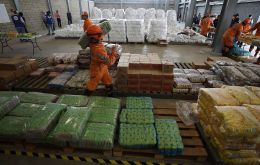
Venezuelan opposition envoy Maria Teresa Belandria was received as her country’s official ambassador in Brazil on Monday and said Brazil’s government would provide all possible support to get humanitarian aid to the border.
-
Tuesday, February 12th 2019 - 09:47 UTC
Guaido delivers a “symbolic” first cargo of humanitarian aid
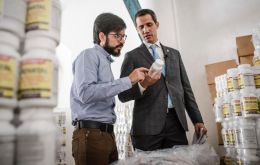
Venezuela’s opposition leader, Juan Guaido, said on Monday his team had delivered a first cargo of the humanitarian aid that has become a flashpoint in his tussle with President Nicolas Maduro, without specifying how it had received it.
-
Monday, February 11th 2019 - 08:40 UTC
PDVSA telling customers to deposit oil sales in an account of Russia's Gazprombank

Venezuela's state-run oil company PDVSA is telling customers of its joint ventures to deposit oil sales proceeds in an account recently opened at Russia's Gazprombank AO, according to sources and an internal document, reported Reuters on Saturday.
-
Monday, February 11th 2019 - 08:33 UTC
Guaidó warns Venezuelan military that blocking humanitarian aid is a “crime against humanity”
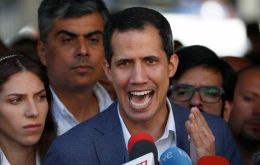
Opposition leader Juan Guaido, recognized by some 50 countries as Venezuela's interim president, warned the military on Sunday that blocking humanitarian aid from entering the country is a “crime against humanity.”
-
Friday, February 8th 2019 - 08:43 UTC
Humanitarian aid arrives to Cucuta, a bridge away from Venezuela

Trucks carrying humanitarian aid for crisis-stricken Venezuela arrived in the Colombian border city of Cucuta on Thursday as diplomatically-isolated President Nicolas Maduro appeared set to block its entry amid an escalating political crisis.
-
Thursday, February 7th 2019 - 16:57 UTC
EU calls for free elections in Venezuela at International Contact Group meeting in Montevideo

The High Representative of the European Union (EU) for Foreign Affairs and Security Policy, Federica Mogherini warned on Thursday at the meeting of the International Contact Group in Montevideo, on a beside the president of Uruguay, Tabaré Vázquez, that the group does not seek a “direct negotiation” but a free, transparent and credible Presidential election in Venezuela.
-
Thursday, February 7th 2019 - 11:14 UTC
“Neutral-neutralized” Uruguay hosts international gathering on the Venezuelan situation
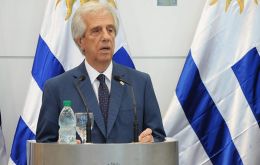
Montevideo, the capital of “neutral/neutralized” Uruguay is hosting this Thursday an international gathering with countries of the Americas and the European Union to address, and attempt to solve or find a way out to the delicate and worsening situation in Venezuela.
-
Thursday, February 7th 2019 - 10:11 UTC
Guaido insists with humanitarian aid for Venezuela, but the Army blocks access
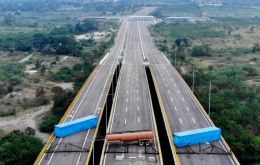
Venezuela’s opposition leader Juan Guaido stepped up efforts on Wednesday to win recognition from EU holdout states and insisted the armed forces allow desperately needed humanitarian aid to enter the country.
-
Wednesday, February 6th 2019 - 08:58 UTC
US humanitarian aid stationed at the Colombia/Venezuela border
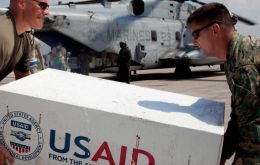
Trucks carrying food and medical supplies sent by the United States to be stockpiled until it can be brought into Venezuela will arrive later this week at Guaido’s request and will be prepositioned at the main Colombian-Venezuelan border crossing at Cucuta, U.S. sources revealed
-
Tuesday, February 5th 2019 - 09:07 UTC
European allies bend to join 'gringo empire' approach

The decision to promote Juan Guaidó as a rival president to Nicolás Maduro in Venezuela was clearly made in Washington, not in Caracas. The speed with which U.S. allies in the Americas and western Europe recognised Guaidó’s claim on Jan. 23 to be the legitimate president of Venezuela would not have been possible without a lot of prior coordination — and a lot of pressure by the Trump administration.
